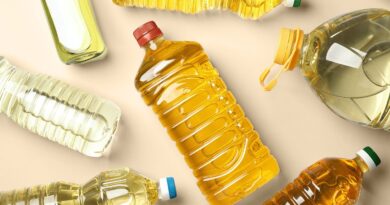KosAbility: RFK’ing the fries – the baffling demonization of seed oils

Steak ‘n Shake, which has nailed the sycophant game, is pandering to RFK Jr by using his hallowed name as a verb announcing plans to transition their restaurants from the seed oils currently used to beef tallow and butter. This means contradicting scientifically sound health advice by following advice favored by RFK Jr’s studies of TikTok influencers—exchanging unsaturated fats such as canola, corn, sunflower, soybean, and safflower oils for saturated fats derived from animals .
I first noticed the term “seed oils” a year ago and was baffled by the demonization of an entire category of cooking oil. What’s wrong with heart-healthy oils? Is this a real issue or another of RFK’s weird positions that conflates correlation with causation?
Fortunately, a scientist I trust, Katelyn Jettelina, covered the topic recently in her Your Local Epidemiologist newsletter: What’s the deal with seed oils? Jettelina, who has a Master’s in Public Health and a Ph.D. in Epidemiology and Biostatistics, noted that a “large body of evidence supports the health benefits of unsaturated fats, particularly when they replace saturated fat,” and asked “so why the backlash?”
Jettelina claims the demonization of seed oils arose due to the fallacy that that they drive the obesity epidemic because the increase in both occurred over a similar time frame associated with the rise in ultra-processed foods. This fallacy also overlooks the reality that both seed and animal fats are prevalent in ultra-processed foods. “Seed oils contain linoleic acid, an omega-6 fatty acid, which can convert to arachidonic acid—a fatty acid involved in inflammation,” Jettelina explains, although “research shows dietary linoleic acid does not significantly raise arachidonic acid levels or most markers of inflammation… additionally most of our arachidonic acid from consuming animal-based foods, such as chicken, eggs, and beef, rather than from seed oils.”
Hexane is also blamed due to the misunderstanding that the hexane used to separate oil when processing seeds and fruit (e.g., avocado, coconut, soy oils) is harmful, although the levels are extremely low and much less than those present in air pollution.
Perhaps the biggest reason seed oils have been demonized is what Jettelina calls “follow the money … a booming wellness market that profits from fear. Wellness influencers such as physician Mark Hyman, fitness and food writer Mark Sisson, and (I can’t believe I’m writing this) Carnivore MD Paul Saladino have developed products and services that profit from claiming seed oils are harmful.
We are living in an increasingly absolutist time that frames issues as good/bad, often using lies as supporting evidence. People are habituated to easily understood problems and solutions, the Fox Newsification of the U.S. that oversimplifies complex topics and promotes cultivated ignorance. Jettelina acknowledges that linear thinking is also behind the “seed oil evil” propaganda.
Ultimately, the seed oil debate reveals a deeper issue with how we talk about nutrition. We tend to fixate on single ingredients or nutrients—such as seed oils, gluten, carbs, and fats—while ignoring the complexity of whole foods and the broader picture of overall diet quality, which matters far more.
So, what’s the bottom line, are seed oils healthy? Katelyn Jettelina sums it up.
Yes—as a part of a healthy diet.
Seed oils are particularly high in polyunsaturated fats (PUFAs) that are important for heart health, cell function, metabolism, immune regulation, and even brain health. Specifically, they offer linoleic acid, an essential omega-6 PUFA that our bodies can’t make on their own, so we have to get it from food.
|
KOSABILITY IS BY AND FOR PEOPLE LIVING WITH DISABILITIES; WHO LOVE SOMEONE WITH A DISABILITY; OR WHO WANT TO KNOW MORE ABOUT THE ISSUES. OUR DISCUSSIONS ARE OPEN THREADS IN THE CONTEXT OF THIS COMMUNITY. |
|---|


